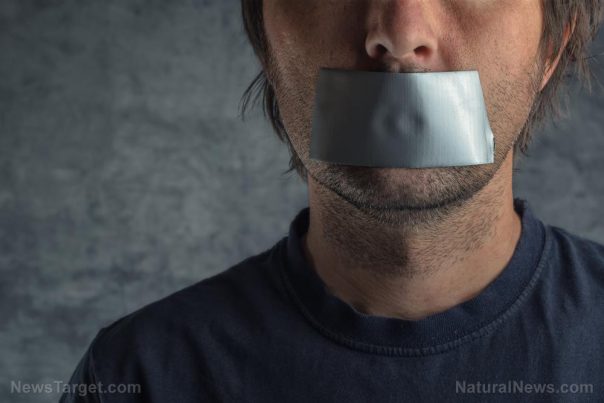
Leftist journalist regrets calling for Silicon Valley censorship after it happens to him
Tuesday, February 09, 2021 by News Editors
http://www.progress.news/2021-02-09-leftist-journalist-regrets-calling-for-censorship.html

A leftist journalist expressed regret about calling for Silicon Valley to censor content after it happened to him.
(Article by Paul Joseph Watson republished from InfoWars.com)
Progressive reporter Jordan Chariton had the change of heart after YouTube took down one of his videos.
Chariton’s original advocacy for censorship occurred when he called for Big Tech giants to target anyone who questioned the legitimacy of the 2020 presidential election.
“EVERY media outlet that pushed this INSANE election fraud conspiracy for clicks should be taken off the air. They’ve incited a Civil War,” Chariton tweeted on January 6, the date of the Capitol breach.
THREAD: With time to reflect, & seeing Silicon Valley’s censorship onslaught, I regret this tweet made in heat of moment.
Whether certain cable/YouTube outlets mislead audiences w/ dishonest claims lacking real evidence, they shouldn’t be targeted…https://t.co/h2eWsVLIQq
— Jordan (@JordanChariton) February 3, 2021
However, after YouTube pulled video from his own channel featuring footage of the January 6 riot for violating the platform’s policies against “spam and deceptive practices,” Chariton reversed his position.
“With time to reflect, & seeing Silicon Valley’s censorship onslaught, I regret this tweet made in [the] heat of moment,” the progressive journalist wrote. “Whether certain cable/YouTube outlets mislead audiences w/ dishonest claims lacking real evidence, they shouldn’t be targeted.”
Chariton noted that with the precedent having been set for blanket censorship, progressive content was also now being unfairly targeted, while pointing out that big left-wing networks with friendly YouTube ties like the Young Turks were not calling it out.
the FEW independent leftist outlets…including the VERY FEW IN-THE-FIELD reporting networks like @StatusCoup. Shame on @TheYoungTurks and other outlets with MUCH bigger platforms for not drawing more attention to this censorship binge.
— Jordan (@JordanChariton) February 3, 2021
In a subsequent interview, the journalist noted that the purge of right-wing content was merely an excuse for YouTube to “get rid of” all content that questioned the consensus on subjects such as healthcare or U.S. foreign policy.
Chariton pointed out that big networks like CNN that carried the exact same footage from January 6 were not targeted at all by YouTube.
Read more at: InfoWars.com and Censorship.news.
Tagged Under: Tags: Big Tech, Censorship, conspiracy, Jordan Chariton, Leftists, Silicon Valley, Twitter, Tyranny, YouTube
RECENT ARTICLES


California school districts “phase out” D and F grades in bizarre effort to claim public school pandemic-era students aren’t FAILING

Bill Maher calls for an end to COVID restrictions, says freer red states a ‘joy’ to visit
By News Editors

Lincoln Project Democrat operatives busted for White nationalist hoax
By News Editors

MASS PROTESTS erupt across America; even Biden voters now rejecting tyrannical vaccine mandates … “Let’s go Brandon” protest rap goes viral
By Mike Adams
COPYRIGHT © 2017 PROGRESS NEWS


